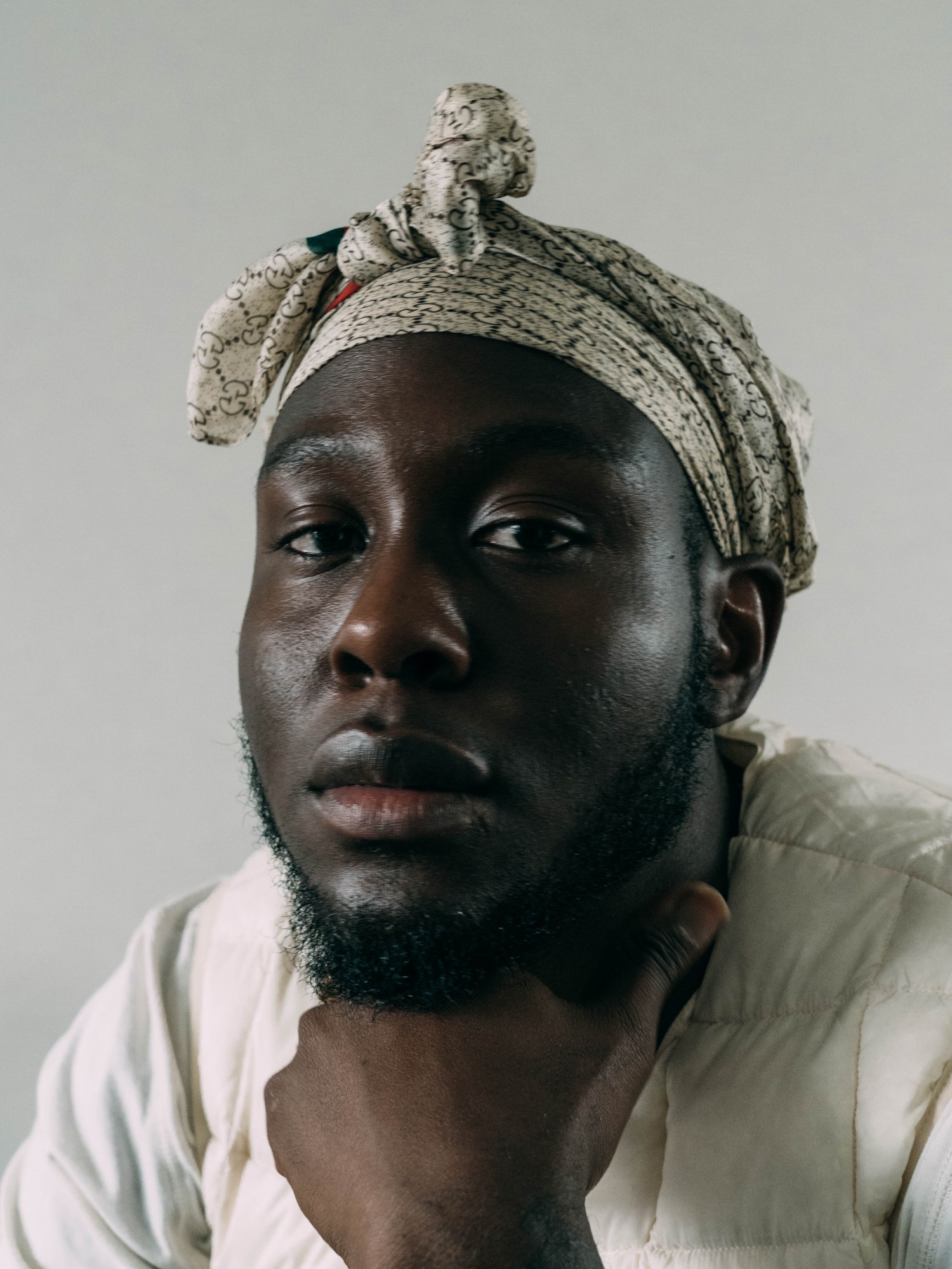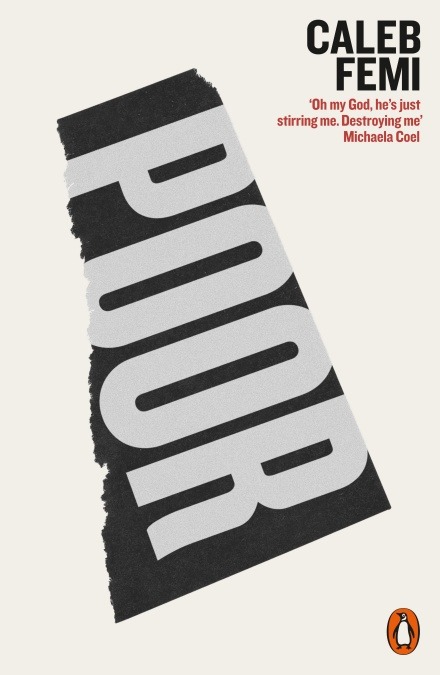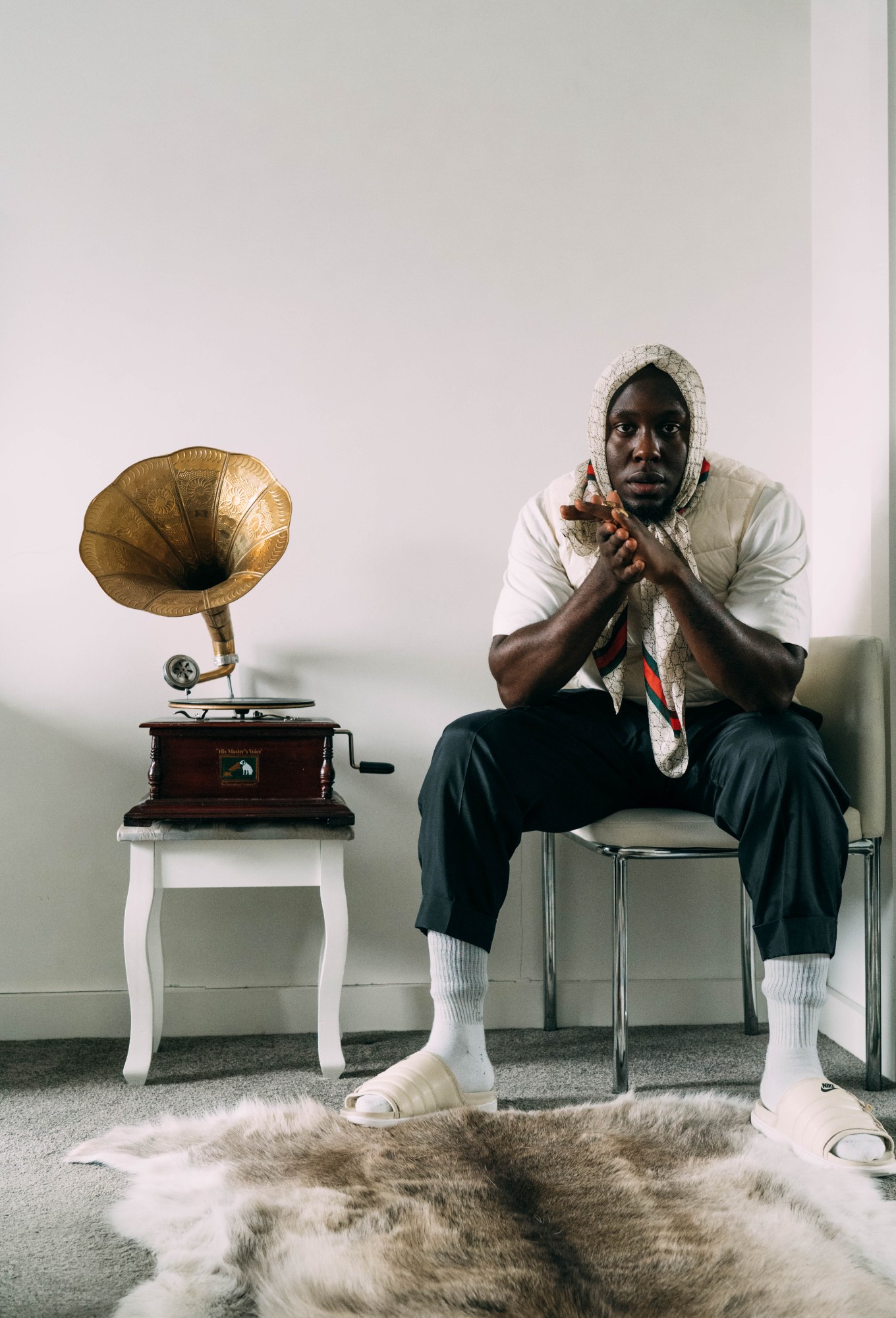Before fame and money there is art. Before art, there is the person. “If we think about when we became something, it goes into the philosophical realm,” the artist Caleb Femi says, reflecting on when poetry first entered his life. “It would come up in creative writing in school, not doing the work and expecting to read something in front of the class, and just freestyling it off my head.” His debut book Poor has just been published. In it, he’s interwoven an immersive collection of raw, delicate vignettes centred around growing up on the North Peckham estate in south-east London.
Like many of his contemporaries, such as DJ and presenter Yinka Bokinni in her BBC documentary Damilola: The Boy Next Door, Caleb considers the tragic murder of 10-year-old Damilola Taylor in 2000 as a fork-in-the-road moment. Taylor was killed by two boys, aged 12 and 13, with a broken glass bottle. His fate would subsequently become a timeless, pained symbol for urban violence and community safety across the country. For Caleb, it was close to home in more ways than one. He and Damilola were both Nigerian-born; they were of a similar age, and lived only a stone’s throw from one another. “I remember seeing him go to the library and deciding that I was going to go another way because I felt like assimilating was a better form of protection,” he says, on how the incident forced boys like him to seek thicker armour against the potential harms of their harsh environment. His poem “How to Pronounce: Peckham” — “how the mourning hangs in the air as thick as pollen / & like all fevers not everyone is affected” — is an ode to Taylor.
At secondary school, Caleb was several years below the writer, Yomi Sode — one of London’s most revered poets, whose work has helped to make poetry more accessible over the last decade, and the creator of one-man theatre show, COAT — who he cites as a key influence. Their state comprehensive in Southwark, South London was dubbed among the worst in Britain by tabloid newspapers. Some teachers reportedly dabbled in sex work and drug-dealing; the weakest were robbed by students on their journeys home. Samurai swords and guns were found stashed in lockers. Fireworks were let off in lessons. “It wasn’t an institution for education. It was an institution for surviving,” Caleb recalls.
Meanwhile, he was identified as gifted and forced to take his exams early, but given little direction for his future or life beyond the school gates. He would return home to cramped living conditions via territorial, overpoliced roads, navigating the panoptic surveillance and demonising regeneration projects of the New Labour government. Yet the fun and colour of childhood, a theme which emanates vibrantly from the pages of Poor, persisted in the imagination of Caleb’s games and mischief. His mind whirred beneath the heat of inner-city pressures. Language let him live.

“I wanted words to be the coolest thing about teenage life, which it wasn’t at the time,” he admits now. In the first years of the new millennium, late-1990s UK garage — a genre whose first parties took place on Sunday mornings at a pub on the Elephant & Castle roundabout, which Caleb, barely old enough to drive, would whizz past in second-hand cars bought from a local scrapyard — was evolving into grime music. Here was a new subcultural arena in which a poetic pen could compete and sharpen. “It took on a musical form with grime and pirate radio stations. There wasn’t a kid who didn’t write a 16-bar.” Later, reaching adulthood, writing became a personal preoccupation. “I didn’t intend for the world to hear. I was just writing bedroom poetry. Then at uni I started doing open mics.”
In 2016, Caleb quit his job as an English teacher at an academy in Tottenham, north London, and was given the role of the capital’s first Young People’s Laureate. His task was to bring poetry to the young masses, especially those locked-out of a medium traditionally reserved for an armchair elite.
“When you’re on stage about to read poetry it’s an out-of-body experience, where you’re watching someone you recognise, your body, minus the agency you would usually have, read your deepest thoughts and secrets to a crowd of people you don’t know. At that time, poetry had a therapeutic quality to it. It was a place for me to find a community of people who loved words: the craft of poetry; people who wanted to interrogate and investigate some of the most communal feelings that we all have. It was a space where I could find peace.”
The publication of Poor, which has been longlisted for the prestigious Rathbones Folio Prize this year, represents poetry’s wider acceptance. “It’s caught up with and contributed to the chaos of living,” Caleb says. The book is a vital emblem of how the art form has taken on a mainstream and practical significance in society. Poetry can be a lubricant for the creaky cogs of social progress, personal relationships and private emotions. Like the discourse-shattering works of George The Poet’s Have You Seen George’s Podcast?, or Roger Robinson’s T.S Eliot Prize-winning handbook for empathy, A Portable Paradise — the latter mentors Caleb — Poor functions as both a toolkit of Black British activism and a piece of dissectible literature for people from all walks of life to absorb, enjoy and move forward with.
“Poor is a celebration of a community of people who live in a tough condition but still find ways to thrive, love one another, [and] cultivate and integrate their respective cultures. It looks at violence — and when I say violence, a lot of people think of violence the media talks about: the violence done by people within the community. But I am more preoccupied with structural violence. State-sanctioned violence. The violence that is enacted on the people. The letting down of safety regulations of their houses. Dilapidated conditions people live in. Lack of infrastructure, lack of opportunities. All those things to me are the most violent acts you can do.”
Stereotypes are shattered. In poems like “Boys In Hoodies” and “Contrary to Rap Songs a Trap House Is Not All Glitter and Money”, Caleb offsets the hardened, man-made, urban landscape of his upbringing with the greens of leaves, blues of skies and openness of vulnerability. Concrete and nature, certainty and infinity, science and religion are in constant juxtaposition. “Living in an area that is mostly devoid of natural presence such as trees and foliage, I like to think about the impact that has on us. What are we missing if we don’t have access to these spaces?” he poses.
The same preoccupation with escapism fills Caleb’s YouTube channel, where short films accompany his poems. In “Secret Life of Gs” a group of three young men drive out from the grey city to spend time in an ivy-gripped cottage, where they harvest honey from a beehive and spend a laughter-filled evening pouring their crop into glass jars beside a warm AGA. The tense short film for “Survivor’s Guilt”, another poem from Poor, made the selection for the BAFTA-qualifying Aesthetica Short Film Festival.
“It goes beyond just feeling guilty about being a survivor of an incident in which other people weren’t able to survive,” Caleb says of the film’s purpose. “I think it’s more about the idea of fate. I think about what it means to be in the position I am in, and what has led up to that…It’s a bunch of statistics: the statistics of me living in this country, the statistics of me going into writing. Anyone else who ended up following those paths could have ended up here as well. Especially when I think about it in a global sense. I was born in Nigeria but there’s probably an equivalent of me in Nigeria doing something else, and the difference between him and me was a set of choices made by my parents to come over here and not stay over there.”
By being a depository for so many honest reflections, Poor does well throughout to challenge norms about masculinity, and incentivise being open about feelings and emotions.

“Sometimes it’s a mechanical thing, your memory isn’t always there when you experience something traumatic, and the reason you can’t remember things is that your brain is trying to protect you from entering that space that damaged you so much. And that’s not to provide an excuse for men to not open up, but it provides perspective that this is more about instinctive survival. Fight or flight. When you understand that a bit better about yourself, you’re able to begin to tease your brain and body to slowly go back to those places that initially you’re not able to access or think about…knowing that if you go back into that space, you’re supported. You’re not there anymore.”
In “Repress”, Caleb presents an incomprehensible conversation between a young man sat in a hospital bed and a pair of visiting police officers trying to question him. “There is always a disconnect,” he says of the poem’s context. “Because there is a level of humanity that is not afforded to the community. That is what I wanted to present in this book: that the police don’t listen. They’re not here. They’re not actually present.”
Recently, Caleb recorded himself on his Instagram stories being stopped and searched by police officers, claiming that he had been cycling the wrong direction down a one-way road. Even upon realising their mistake, they denied any wrongdoing and maintained their right to search him, before letting him go.
“I have a problem, because if I was a random 14-year-old kid you would have taken advantage,” he says. “You would have abused your power.”
As you move through the pages, Caleb’s original photography — pictures of London’s estates, childhood birthday parties, and portraits — can be found. “I wanted to police the imaginations of people who, when they think about the community the book is about, think of mug shots or violent images or reductive in their preoccupation,” Caleb says. “I want people to remove those images out of their mind and replace them with images in the book, which are of just regular working class people having a good time and being photographed in ways that communicate all the other parts of their lives that often don’t get to be seen.
“People smiling, people laughing, people having birthday celebrations, people who are dressed in the best fashion. Regular folk, you know?”


